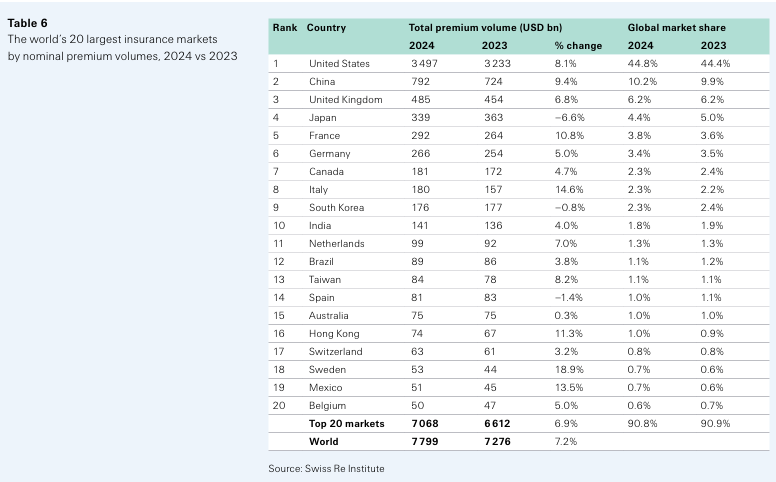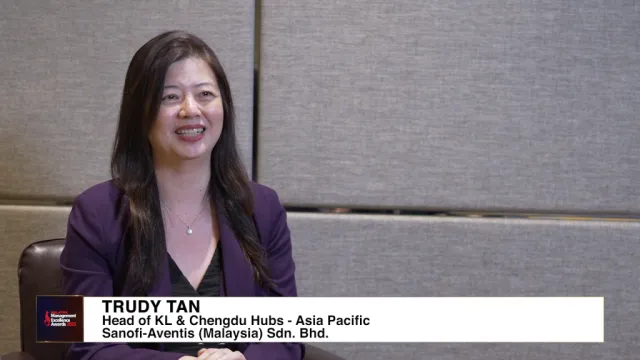
Swiss Re sees global premium growth easing to 2% in 2025
China’s growth is expected to slow to 4.7% next year.
Global insurance premium growth is expected to slow to 2% in 2025, from 5.2% in 2024, before recovering slightly to 2.3% in 2026.
This will be influenced by broader economic deceleration triggered by US tariff policies and growing global uncertainty, according to Swiss Re Institute’s latest World Insurance sigma report.
Global GDP growth, adjusted for inflation, is projected to ease to 2.3% in 2025 and 2.4% in 2026, down from 2.8% this year.
Swiss Re Group Chief Economist Jérôme Haegeli said that whilst insurers will continue to benefit from rising investment income, tariffs are expected to weigh on economic activity and insurance demand.
He warned that the long-term trend toward market fragmentation will erode insurance affordability and availability.
China’s growth is expected to slow to 4.7% next year from 5.0% in 2024, as trade tensions and uncertainty dampen activity.

Swiss Re warned that economic fragmentation poses long-term risks to the insurance industry.
Prolonged inflation from trade barriers and supply chain disruptions may raise claims costs, whilst restrictions on cross-border capital flows could increase capital costs and limit the insurability of peak risks.
Non-life insurance premium growth is forecast to fall to 2.6% in 2025 from 4.7% in 2024 due to softening commercial lines and competition in personal lines.
Life insurance growth is projected to slow from 6.1% in 2024 to 1% in 2025, before picking up to 2.4% in 2026, as the impact of high interest rates fades.
Despite the slowdown, overall profitability remains supported by improved investment returns.
Swiss Re noted that certain segments, including credit and surety insurance, may see increased demand as businesses seek more protection amidst heightened financial risks.
Some growth opportunities could also arise from fiscal stimulus in regions like the EU and China, and from supply chain shifts benefiting marine insurance outside the US.



















 Advertise
Advertise









